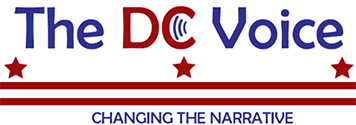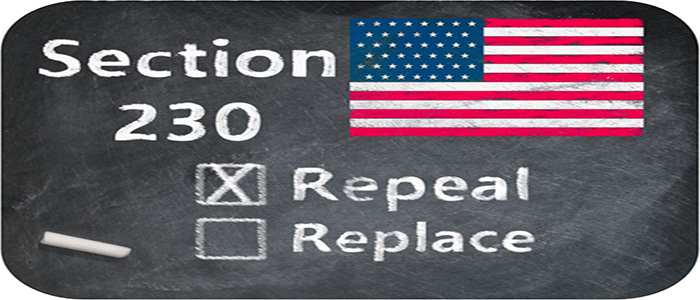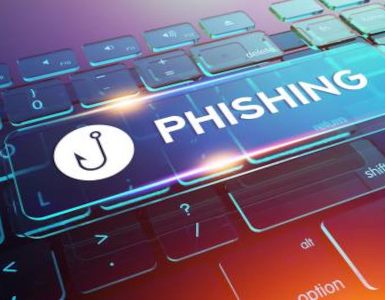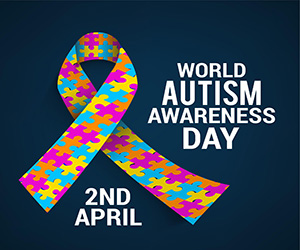Although the absence of hourly tweets from the commander in chief is refreshing, Twitter and Facebook set dangerous precedents by blocking President Trump’s accounts. They cited the president’s tweets following the events of January 6th as promoting violence. Trump’s opponents may cheer the banning, but the bigger issue threatens all of us. The solution lies in Title 47 U.S. Code § 230 (Section 230) – Protection for private blocking and screening of offensive material.
47 U.S. Code § 230
The integrity of the main social media triumvirate; Google, Facebook, and Twitter is questionable at best. They have thrived on creating a marketplace where they control the American narrative. In a world of likes, dislikes, tweets, and retweets, they have single-handedly shaped the way we collect, process, and disseminate news information. The problem with it is that Section 230 allows them to do it unregulated.
People tend to link free speech to social media platforms. However, free speech doesn’t apply outside of the federal government. Publishers, news media, and others have full discretion on who they give access to their platforms. Unlike social media platforms, these entities have rules and regulations to follow. The heart of the problem in Section 230 is Part (c) Protection for “Good Samaritan” blocking and screening of offensive material
(1) Treatment of publisher or speaker
No provider or user of an interactive computer service shall be treated as the publisher or speaker of any information provided by another information content provider.
(2) Civil liability No provider or user of an interactive computer service shall be held liable on account of—
(A) any action voluntarily taken in good faith to restrict access to or availability of material that the provider or user considers to be obscene, lewd, lascivious, filthy, excessively violent, harassing, or otherwise objectionable, whether or not such material is constitutionally protected; or
(B) any action taken to enable or make available to information content providers or others the technical means to restrict access to material described in paragraph (1).
Publisher or Platform
Pew Research reports that “One-in-five U.S. adults say they often get news via social media, slightly higher than the share who often do so from print newspapers (16%).” In other words, more people are relying on untrusted sources for their news and information. Untrusted is somewhat nebulous. However, the source can’t be verified or validated. The use of bots has taken over social media platforms to shape the content and keystrokes. Keystrokes equal revenue.
Bots are operated on social media networks, and used to automatically generate messages, advocate ideas, act as a follower of users, and as fake accounts to gain followers themselves. … Social bots can be used to infiltrate groups of people and used to propagate specific ideas. Although these platforms espouse concern and dismay they take very limited actions to prevent the use of bots to exploit their audience.
With this in mind, social media companies prefer to refer to themselves as platforms. As platforms, they can compare themselves to an interstate highway. In other words, they are the infrastructure that allows everyone to drive. It’s a “free marketplace of ideas.” On the other hand, publishers have to follow a different set of rules.
Civil Liability
The biggest drawback to being seen as publishers is civil liability. Free from civil liability protects them from lawsuits. Simply put, publishers can be sued for publishing false and defamatory statements. While social media is notorious for publishing outright lies, unchecked. They claim an inability to monitor the volume of traffic moving through their system. That assertion is debunked when we find that their sophisticated algorithms are used to manipulate traffic.
Democratic and Republican lawmakers have recently put a brighter spotlight on this issue. There is finally recognition that these company’s continued growth must be checked. The ability to sway an election (2016) and then incite an insurrection 4 years later should be enough proof of their power. But what does this mean for us?
So, Why is it Important?
We are so entangled in these platforms that we are unaware of the way we are being manipulated. How our information is being mined and sometimes used against us. And, most importantly, the way these multi-billionaires have become the modern-day monopolist – crushing smaller entrepreneurs in their wake. The Telecommunications Act of 1996 protected the Internet as a “nascent” entity that needed time to grow and thrive free of over-regulation.
That time has passed. It is no longer in its infancy. At best it’s a spoiled child that needs to be reigned in. At its worst, it’s an inciteful playground or Petrie dish to foment hate, divisiveness, and lies. The good can outweigh the bad only if we break it back down to its core principles and philosophies that it was built on.
***
https://www.seattletimes.com/opinion/regulate-social-media-companies-like-news-organizations/
https://firstmonday.org/ojs/index.php/fm/article/view/7051/6124
If Social Media Companies Are Publishers and Not Platforms, That Changes Everything
https://www.law.cornell.edu/uscode/text/47/230
America’s Tech Giants Opt-Out of Idea of Being Regulated Like Utilities
Who Will Shape Consumer Privacy Laws Using Common Sense Standards?
Google CEO Doesn’t Know How His Company Operates – Needs Government Guidance


















Add comment